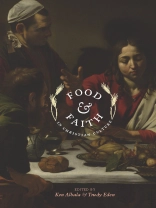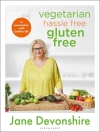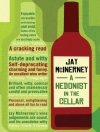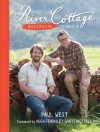Without a uniform dietary code, Christians around the world used food in strikingly different ways, developing widely divergent practices that spread, nurtured, and strengthened their religious beliefs and communities. Featuring never-before published essays, this anthology follows the intersection of food and faith from the fourteenth to the twenty-first century, charting the complex relationship among religious eating habits and politics, culture, and social structure.
Theoretically rich and full of engaging portraits, essays consider the rise of food buying and consumerism in the fourteenth century, the Reformation ideology of fasting and its resulting sanctions against sumptuous eating, the gender and racial politics of sacramental food production in colonial America, and the struggle to define ‘enlightened’ Lenten dietary restrictions in early modern France. Essays on the nineteenth century explore the religious implications of wheat growing and breadmaking among New Zealand’s Maori population and the revival of the Agape meal, or love feast, among American brethren in Christ Church. Twentieth-century topics include the metaphysical significance of vegetarianism, the function of diet in Greek Orthodoxy, American Christian weight loss programs, and the practice of silent eating rituals among English Benedictine monks. Two introductory essays detail the key themes tying these essays together and survey food’s role in developing and disseminating the teachings of Christianity, not to mention providing a tangible experience of faith.
İçerik tablosu
Introduction, by Trudy Eden
Historical Background to Food and Christianity, by Ken Albala
1. The Urban Influence: Shopping and Consumption at the Florentine Monastery of Santa Trinità in the Mid-Fourteenth Century, by Salvatore Musumeci
2. The Ideology of Fasting in the Reformation Era, by Ken Albala
3.’The Food Police:’ Sumptuary Prohibitions on Food in the Reformation, by Johanna B. Moyer
4. Dirty Things: Bread, Maize, Women, and Christian Identity in Sixteenth-Century America, by Heather Martel
5. Enlightened Fasting: Religious Conviction, Scientific Inquiry, and Medical Knowledge in Early Modern France, by Sydney Watts
6. The Sanctity of Bread: Missionaries and the Promotion of Wheat Growing Among the New Zealand Maori, by Hazel Petrie
7. Commensality and Love Feast: The Agape Meal in the Late Nineteenth- and Early Twentieth-Century Brethren in Christ Church, by Heidi Oberholtzer Lee
8. Metaphysics and Meatless Meals: Why Food Mattered When the Mind Was Everything, by Trudy Eden
9. Fasting and Food Habits in the Eastern Orthodox Church, by Antonia-Leda Matalas, Eleni Tourlouki, and Chrystalleni Lazarou
10. Divine Dieting: A Cultural Analysis of Christian Weight Loss Programs, by Samantha Kwan and Christine Sheikh
11. Eating in Silence in an English Benedictine Monastery, by Richard Irvine
Bibliography
Index
Yazar hakkında
Ken Albala is professor of history at the University of the Pacific. His many books include Eating Right in the Renaissance; The Banquet: Dining in the Great Courts of Late Renaissance Europe; Beans: A History; and The Lost Art of Real Cooking: Rediscovering the Pleasures of Traditional Food One Recipe at a Time. He is also the coeditor of the journal Food Culture and Society, as well as several food series and the Food Cultures of the World Encyclopedia. Trudy Eden is an associate professor at the University of Northern Iowa and writes about all the many things people do with food. Her other books are The Early American Table: Food and Society in the New World and Cooking in Early America, 1590–1840.












